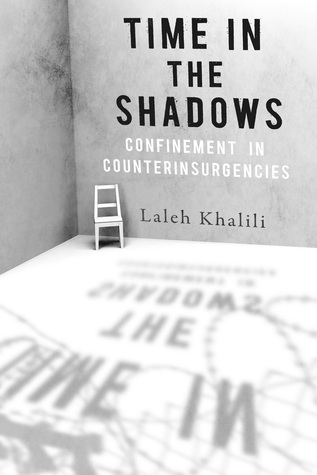
2012
First Published
4.47
Average Rating
367
Number of Pages
Detention and confinement―of both combatants and large groups of civilians―have become fixtures of asymmetric wars over the course of the last century. Counterinsurgency theoreticians and practitioners explain this dizzying rise of detention camps, internment centers, and enclavisation by arguing that such actions "protect" populations. In this book, Laleh Khalili counters these arguments, telling the story of how this proliferation of concentration camps, strategic hamlets, "security walls," and offshore prisons has come to be. Time in the Shadows investigates the two major liberal counterinsurgencies of our Israeli occupation of Palestine and the U.S. War on Terror. In rich detail, the book investigates Abu Ghraib, Guantánamo Bay, CIA black sites, the Khiam Prison, and Gaza, among others, and links them to a history of colonial counterinsurgencies from the Boer War and the U.S. Indian wars, to Vietnam, the British small wars in Malaya, Kenya, Aden and Cyprus, and the French pacification of Indochina and Algeria. Khalili deftly demonstrates that whatever the form of incarceration―visible or invisible, offshore or inland, containing combatants or civilians―liberal states have consistently acted illiberally in their counterinsurgency confinements. As our tactics of war have shifted beyond slaughter to elaborate systems of detention, liberal states have warmed to the pursuit of asymmetric wars. Ultimately, Khalili confirms that as tactics of counterinsurgency have been rendered more "humane," they have also increasingly encouraged policymakers to willingly choose to wage wars.
Avg Rating
4.47
Number of Ratings
53
5 STARS
66%
4 STARS
19%
3 STARS
13%
2 STARS
0%
1 STARS
2%
goodreads
Author
Laleh Khalili
Author · 5 books
Laleh Khalili is an Iranian American and Professor of International Politics at Queen Mary University of London. She was formerly a Professor of Middle Eastern Politics at the School of Oriental and African Studies at the University of London. She graduated from University of Texas, and received her PhD from Columbia University. Her primary research areas are logistics and trade, infrastructure, policing and incarceration, gender, nationalism, political and social movements, refugees, and diasporas in the Middle East.